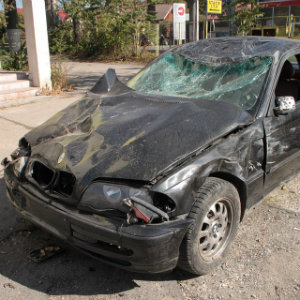Take Photos
Make sure to take plenty of photos of the accident scene and your injuries. Reconstruction experts can determine the cause of the accident and speeds of the vehicles at the time of the accident by analyzing the damage from both vehicles.
Ask For Copies of the Police Report
After the police have conducted their investigation, make sure to ask for a copy of the report. The police will often be able to determine the at-fault driver after questioning both parties. Police corroboration of your story is a big bargaining chip in civil court.
If you’ve been hit by a speeding motorist, it’s crucial to gather as much information as possible. By doing this, you allow your personal injury lawyer to build a strong case if a lawsuit is necessary.
Pennsylvania Insurance Laws
Before you seek legal counsel, it’s important to first understand Pennsylvania car insurance law and how it relates to civil cases. PA is one of three “Choice No-Fault” car insurance states. Drivers have the option to choose between two types of insurance plans - full tort or limited tort. If your plan is limited tort, then you have opted into the no-fault clause. Those ensured with full tort have opted out of this clause.
There are a few limited tort exceptions which grant the insured individual the rights of a full tort policy. Such exceptions include:
- Pedestrians and cyclists - Pedestrians and cyclists receive full tort rights when struck by a motor vehicle. They will still have economic expenses covered by insurance, but will not be restricted to limited tort options since they were not operating a motor vehicle at the time of the accident.
- Victims of DUI & DWI - These victims receive full tort rights. Otherwise, DUI offenders would benefit from limited civil liability.
- Uninsured at-fault driver - Victims are permitted to sue uninsured at-fault drivers for damages.
- Non-private passenger vehicles - Passengers and drivers in non-private vehicles, such as commercial vehicles and buses, are not bound by limited tort restrictions.
- Out of state vehicle - If the at-fault driver has a vehicle registered in another state, a limited tort driver will receive an exception.
These exceptions may allow a limited tort customer to receive the benefits of full tort.
Limited Tort
No-Fault policies dictate that in the case of an accident, each driver’s insurance will help to cover economic expenses, such as medical bills and lost wages. If necessary, the victim is permitted to sue for further financial compensation for these economic expenses. However, those with limited tort plans are only permitted to sue for non-economic expenses like pain and suffering if they have a “serious injury”
The legal definition of “serious injury” is a bit murky, and may vary on a case by case basis. There are some obvious examples, such as permanent disability or disfigurement. A reliable personal injury attorney will gather evidence to prove that his or her client has suffered a “serious impairment of body function” which has significantly restricted the client’s daily life.
High-speed collisions often cause serious spinal and brain injuries. These types of injuries often meet the serious injury threshold, depending on the severity.
The criteria for determining serious injury is subjective and may vary depending on lifestyle. For example, a construction worker with a bulging disc would experience significantly more restrictions in his daily life than a retiree with the same injury.
Full Tort
Full tort policies offer more extensive coverage for accident victims. These drivers are permitted to privately sue the at-fault driver for pain and suffering without meeting the legal standards for “serious injury”. On average, a full tort plan is about 15% more expensive than a limited tort plan from the same insurance agency.
If you’ve been the victim of a high-speed collision and have full tort coverage, you have much more versatility when pursuing a lawsuit. Full tort coverage is much more likely to result in a settlement or favorable court ruling in a car accident lawsuit.
Legal Consultation
If you’re considering filing a lawsuit in a high-speed collision case, you may be confused by all of the complexities of PA insurance laws. It’s best to seek out a Pennsylvania car accident lawyer who has experience dealing with similar cases. Try to gather as many relevant documents (medical records, police records, insurance records, etc.) as you can before scheduling a consultation, but our legal team is prepared to help you fill in the gaps in order to acquire all pertinent information for your case.
More About Car Accidents










